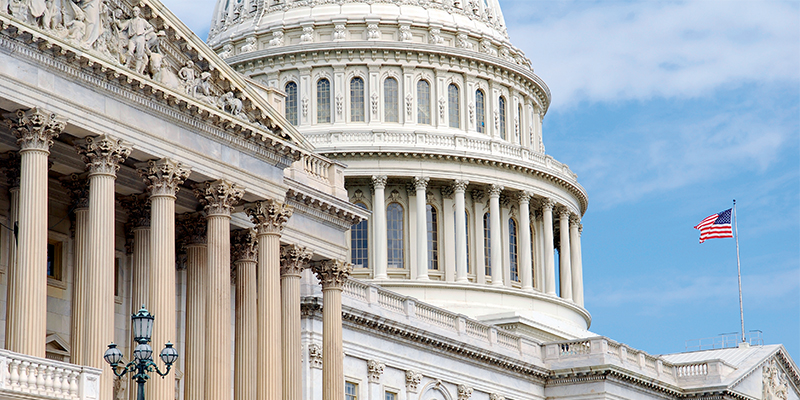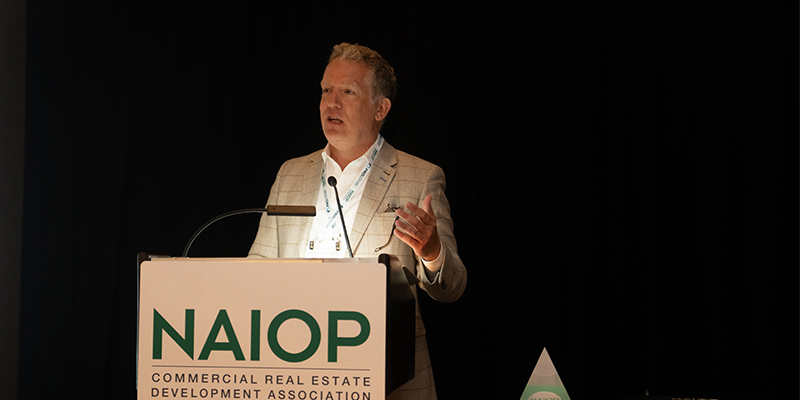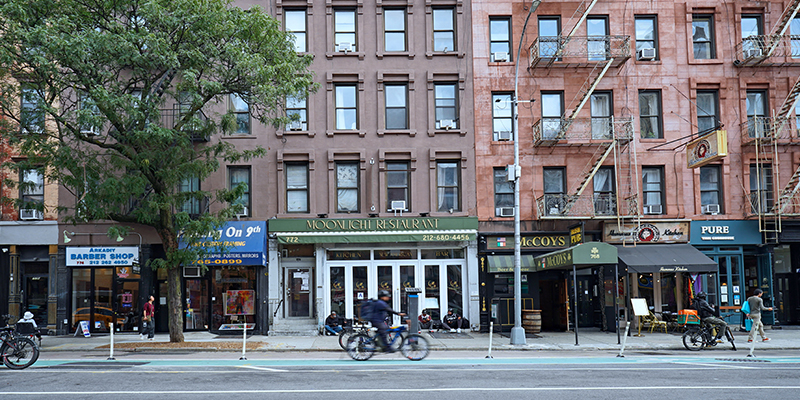“This past year has been a time of great flux and change in commercial real estate throughout the pandemic, as it has for the nation,” opened U.S. Congressman Van Taylor (R-TX) as he addressed members of the NAIOP Board of Directors in their virtual January meeting. “I like to think Congress has done some things right over the last year, the most important of which was funding Operation Warp Speed last March to accelerate vaccine development. We’re starting to see progress and will hopefully continue to see the ship turning.”
For commercial real estate – an industry he knows well through his work on the House of Representatives’ Financial Services Committee and his long-standing relationship with NAIOP, particularly members in Texas – Taylor acknowledged that the pandemic has created what he called a “wild ride” that included a drop in investment and rental rates, a surge in vacant spaces as retailers and restaurants close, and continued uncertainties for the office sector.
Taylor said he’s been deeply concerned about the inflexibility of the commercial mortgage-backed securities (CMBS) market and potential foreclosures that could create more turmoil. Commercial real estate debt in the U.S. is around $5 trillion, and $500 billion or 10% of that is CMBS debt. “That could mean a tremendous amount of pain for the CRE sector with reductions in rates and net operating incomes,” he said. “At some point, CMBS is going to have to start foreclosing on properties and I’ve been trying to forestall that, and create alternatives and options to make that debt structure more flexible.”
As Congress moves ahead in an evenly divided Senate and a House with only a small margin of difference, Taylor believes that bipartisanship can be achieved. He cited the pandemic relief packages passed over the last year and his work on the House Problem Solver Caucus, comprised evenly of Democrats and Republicans committed to finding common ground on many of the key issues facing the nation. “Some of the [economic] proposals coming out of the White House aren’t acceptable to many Republicans and even some Democrats,” he said. “That doesn’t mean there isn’t a deal to be done, and quite the contrary. Working together is the road map to success, and we have COVID vaccines and trillions of dollars to show for bipartisan efforts that have been successful.”
Taylor touched on proposals made by President Joe Biden that are concerning to commercial real estate, including raising capital gains tax rates and eliminating like-kind exchanges. Those kinds of changes could be enormously disruptive the economy, and Taylor said he believes there are enough people on both sides of the aisle who understand that.
“I would be most concerned about a mark to market capital gains tax, which in real estate would be blindingly difficult. It would be catastrophic not only for real estate markets but for public and private equities,” he said, noting that it would have deeply worrisome impact across the economy. “The key is educating members of Congress on how destructive it would be to the economy.”
Taylor said that it’s important to rely on facts in those education efforts, citing that when then-President George W. Bush lowered the capital gains tax in 2003, revenues rose dramatically. “If you want revenues to go up with capital gains, it’s better to lower the rates. That encourages more sales and unleashes more capital to flow into the right places, creating jobs and more wealth.”
Regarding the need for an infrastructure bill, Taylor said he believes a deal is possible but warned that previous proposals have included items outside of that focus, which have created confusion and stalled progress. In his home state of Texas, Taylor mentioned that the state had established dedicated streams of revenue to fund road development, including new vehicle sales tax and a component of gas tax revenue, supplemented by sales tax. He believes the federal government should consider a similar approach to identify revenue resources that fund needed infrastructure improvements.
In closing, Taylor recognized the important role commercial real estate plays in the U.S. economy, noting that, “Commercial real estate is not only what powers America – you create the place to do it. That’s often not understood, but your industry is greatly important for our country.”









